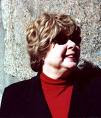
Each week, the National Book Critics Circle will post a list of five books a critic believes reviewers should have in their libraries. We recently heard from Marjorie Perloff, professor emerita of English and Comparative Literature at Stanford University. Here is what she pointed out as worth keeping in your library at all times.
Samuel Taylor Coleridge, Biographia Literaria (1817).
The classic discussion of imagination and fancy, metaphor and symbol, the suspension of disbelief, rhythm and meter.
Ludwig Wittgenstein, Philosophical Investigations (1947) and Culture and Value (1980).
Wittgenstein rarely speaks directly about literature, but he is, of all “critics,” the one who most fully teaches us how to think—and hence to think about the literary. There’s his great quote in Zettel I always bear in mind: “Do not forget that although a poem is written in the language of information, it is not written in the language-game of giving information!”
Ezra Pound, Literary Essays (1954) and ABC of Reading (1934).
Eccentric, biased, maddening, but no one in the twentieth century has written more intelligently about poetry, beginning with the axioms in “A Retrospect”: “Do not retell in mediocre verse what has already been done in good prose,” and “No good poetry is ever written in a manner twenty years old.”
Walter Benjamin, Illuminations (1968) and Reflections (1986), better yet the four volumes of Selected Writings (1996-2003).
The essays on Goethe’s Wahlverwandschaften, on Baudelaire and Brecht, on translation and narrative––and of course the famous “The Work of Art in an Age of Mechanical Reproduction”––display a unique fusion of cultural/political/aesthetic criticism. Benjamin never opts for the easy answer, and his writing is less ideologically driven than that of his friend Theodor Adorno––also a great critic but, despite the difficult brilliance of his theory, not as useful as Benjamin.
Susan Howe, My Emily Dickinson (1995).
Model of how one poet can shed light on another. Howe’s reading of “My life had stood a loaded gun. . .” opens up that Dickinson poem as have few other of her many commentators.
(Note: I wish you would have asked me to name ten, not five. If I could, I would want to include here John Cage’s Silence, an indispensable commonplace book; Baudelaire’s Salons, which pave the way for Modernism; Roland Barthes’s The Empire of Signs (1983), with its wonderful re-imagining of Japan; Hugh Kenner’s The Pound Era (1971), the very best book of American academic criticism I know; and Roman Jakobson’s essays, which show that Russian Formalism, at its best, teaches us HOW TO READ. I recommend in Jakobson especially “The Generation That Squandered Its Poets,” which analyzes Mayakovsky’s failure to confront byt—everyday life.
Marjorie Perloff is professor emerita of English and Comparative Literature at Stanford University.

